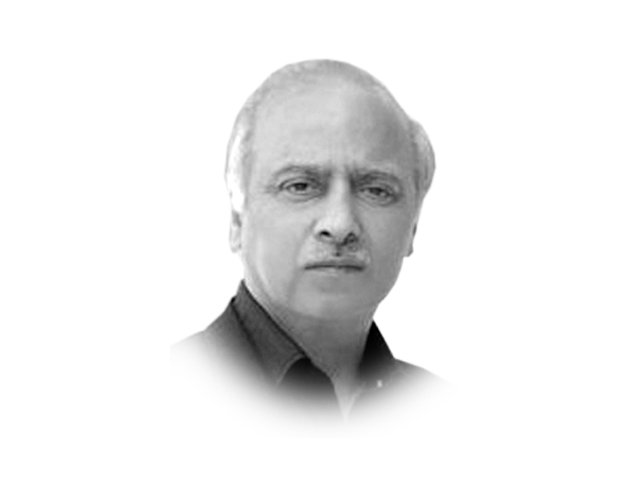
But interestingly, Sartaj Aziz posed a counter-question to the critics I interviewed, “Saudi Arabia gave us a lot of help after the nuclear tests in 1998, what did we do for them? Nothing”.
Detractors raised objections and expressed reservations about Saudi-Pakistan relations in the context of the rumours that Pakistan was being used to recruit fighters for the war against Bashar al-Assad in Syria.
Now, the government’s denials notwithstanding, a gradual shift in Pakistan’s stance on the Syrian crisis is clearly discernible, moving from a strictly neutral player to a tacit supporter of the rebels.
Back in 2012, Islamabad had sought a peaceful political solution, opposing the military option altogether. However, it took a turn in February 2014, when a Saudi delegation visited Islamabad. Islamabad openly supported the formation of a transitional body with executive powers to run the affairs in Syria. What accompanied these reports were speculations in the media that Saudi Arabia wanted Pakistan to supply arms for the Syrian rebels. Although the government gave some clarifications, yet it was reluctant to transparently explain what the purpose behind $1.5 billion by Saudi Arabia was.
This has not only politically polarised Pakistan, but also, once again, strained relations with Iran, a country which supports the Syrian regime, presumably because of sectarian and geopolitical factors. Most political parties are opposed to this paradigm shift and insist upon neutrality.
The MQM, for instance, wants the country to remain neutral in its own interest instead of taking sides with Saudi Arabia. “If Pakistan supports rebels in Syria, then it would be indirectly supporting al Qaeda there,” says MQM senator Syed Tahir Hussain Mashhadi.
The Awami National Party leader senator Haji Adeel says it appears Pakistan hasn’t learnt from the past. “At the end of the day, Pakistan will be the loser as much as it has suffered the consequences of proxy wars among Pakistan, India and Afghanistan”.
Mian Raza Rabbani, the PPP senator, says that a pro-Saudi shift in the policy on Syria would amount to playing with fire. “It’s important for Islamabad to keep equal terms with all Muslim countries otherwise it’s going to be harmful for Pakistan.”
While the government assured the Senate that it would not abandon its ‘stay-neutral’ policy on Syria, Rabbani is sceptical of such assurances. “We have got to learn from past experiences. That (change in policy) could trigger internal security concerns,” the PPP senator said.
Leader of the Opposition in the National Assembly Syed Khursheed Shah pleads ignorance as to what exactly was the government’s position on Syria, a fact even more lamentable because he occupies an extremely important position in the legislature, representing several other parties. All he comes up with is, “change in our position will definitely harm our role as a neutral country”.
This also reflects lead parliamentarians’ ignorance and indifference towards those crucial policy issues which present existential challenges for the country. They enjoy perks and privileges but their mandated function hardly goes beyond shallow rhetoric and hue and cry — witnessed during the recent budget session as well.
Published in The Express Tribune, June 18th, 2014.
Like Opinion & Editorial on Facebook, follow @ETOpEd on Twitter to receive all updates on all our daily pieces.
COMMENTS (6)
Comments are moderated and generally will be posted if they are on-topic and not abusive.
For more information, please see our Comments FAQ













@objective: Really more neutral than India in Syria? Buddy Pakistani fighters took polio virus with them to Syria leaving no doubt that they are there. Has India interfered? In fact in UN it along with China abstained from a proposal by US for regime change in Syria.India's voting record in UN is testimony to the independence of its foreign policy not just this issue but many others.
@abdul Ghafar Khan Hamiya: Which other large Muslim majority country do you want to compare with? Banladesh? Indonesia?
If we think for awhile over the past history of Pakistan and compare with the other Islamic countries , We will definitely see that Pakistan is the only country which is neutral and have a good relation with other Islamic countries. The only reason is behind is well organizes and well structure and well planned Pakistan Army. When we talk about the Pakistan Army it is not like a Army which is exist in the other country, it is the name of ideology, it the name of and important and strong institution. In simple words in the presence of such type of initiation we shall not think about the out country that the Pakistan will commit such kind of act which will hurt and Islamic country in the World.
One should remember Jinnah's advice that Pakstan is the pivot for the world and the leader of the muslim ummah. How can it be neutral and lose its geo strategic significance?
pakistan's foreign policy vis-a-vis Syria has been more neutral than many countries which includes India. India has been bought thoroughly by American hegemony
There is no free lunch in this world and Pakistan has to pay back as Sartaz Aziz has clarified that beside the largess of $1.5B recently there are debt of Saudi Arabia help during Pakistan's isolation after nuclear explosion.This will certainly aggravate Shia-Sunni feud inside and outside the country.It is in the dna of Pakistani State to fall into this trap of sectarianism.
imtiaz gul Pakistan and neutral in front of American, Saudi aid hahahahahah